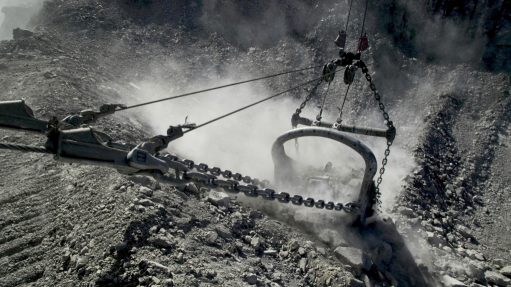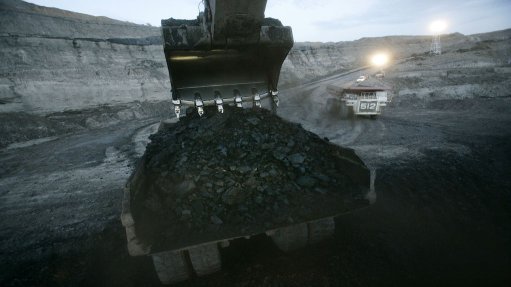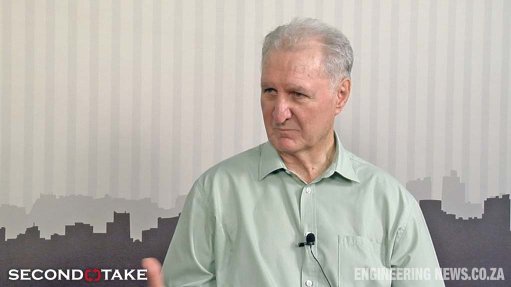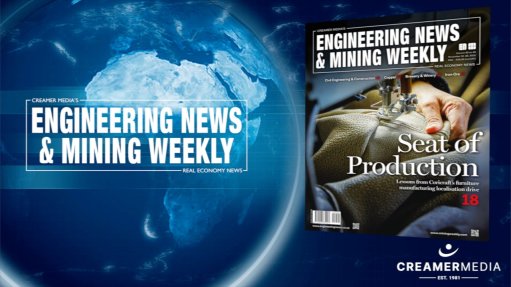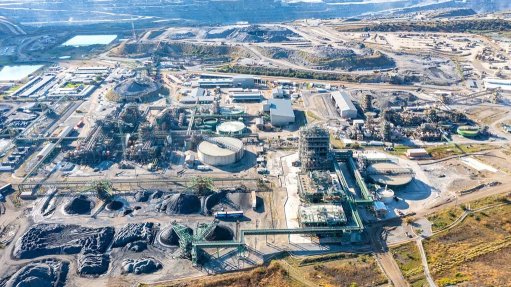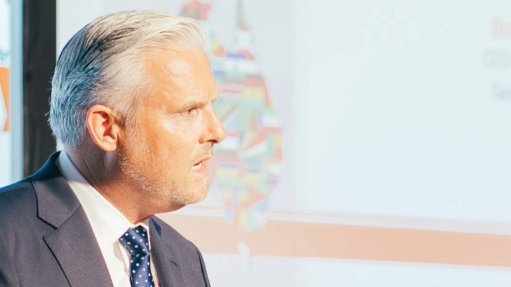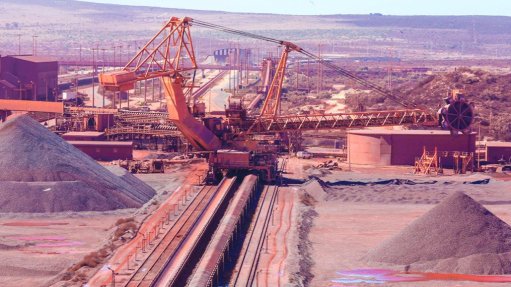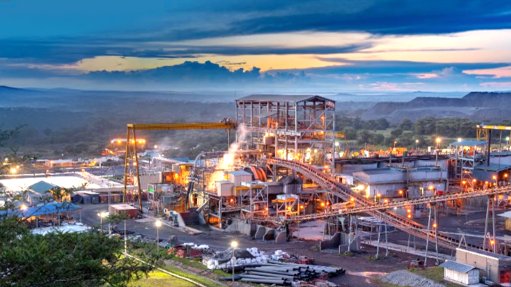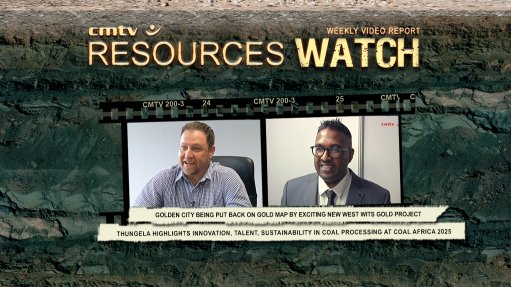MTR’s large social impact earns a social license to operate
This article has been supplied and will be available for a limited time only on this website.
Only after more than a year of operating at the Mintails legacy tailings dumps, Mogale Tailings Retreatment (MTR) is turning the negative impacts of mining into a positive that is also uplifting poorer communities that reside within Mogale Local Municipality.
Wetlands and water systems are returning to life; derelict infrastructure has been removed; illegal mining disrupted; and historic pits, a blight on the landscape and a health and safety risk, refilled. The project has also surpassed initial projections of creating 700 jobs during the project construction phase and 300 employment opportunities during operations. By fast-tracking the project, 1 600 jobs were created during construction, and 500 people have joined the operational team on long-term contracts.
These individuals were recruited from poorer communities located within the project’s operational footprint and traditional labour sourcing areas even further afield. They have been severely impacted by the decline of gold mining in the area which reached unprecedented levels in the 2000s resulting in high levels of unemployment and poverty, exacerbated by the severely degraded environment in which they lived.
Multi-dimensional poverty has hindered access to a quality education, such as that provided by Mogale City’s top performing schools, Mandisa Shiceka School of Specialisation and Ahmed Timol Secondary School which, notably, achieved a 100% pass rate in 2024. Therefore, many adults who reside in these communities have not completed basic education, preventing them from securing meaningful employment in a modern economy.
Without foundational skills, many community members also cannot partake in the learnerships available at MTR. These are geared at developing a robust mining skills pipeline to sustain the company’s operations in the area and the larger mining industry which continues to grapple with shortages of artisans, technicians and engineers. This, while also uplifting communities through skills development and training, a critical component of any mining company’s social-labour plan (SLP), considering its impact if done correctly.
Therefore, MTR has launched a large adult literacy and numeracy training programme to guide functionally illiterate community members to attain a National Qualifications
Framework (NQF) level 1 education, the bedrock of further learning. Thereafter, they will be recruited into MTR’s formal training programmes to continue learning.
More than 50 community members have already completed various levels of adult education and training (AET) and more will be admitted to the programme before the end of the year. This far exceeds the human resource development targets that MTR established for itself in its SLP.
Under the supervision of Mlondolozi Makuni, a seasoned skills development and training expert, including in AET, the programme has been a resounding success.
“We’ve achieved a very high participation and progression rate, while the feedback that we’ve received from learners on the overall quality of the training has been overwhelmingly positive,” Makuni says. “It’s never easy to engage adults in basic skills training, considering that, as grownups, they may have so many other more pressing responsibilities. These range from trying to find jobs or working informally to taking care of households. The fact that they’re attending classes and progressing means that our effort has been well received by communities and responds to their unique needs.”
Consulting the expertise of Triple E Training, a leading provider of AET to the mining industry that is facilitating this training, Makuni decided to pay the learners a stipend to cover their living and transportation expenses while they attend classes.
“This initiative has gone a long way in terms of enabling greater access to MTR’s adult literacy and numeracy training programme by alleviating opportunity costs, ensuring that learners focus on their studies leading to better performance and increased motivation. Paying stipends is especially important for community skills development programmes which are mainly geared at unemployed people or individuals who work informally,” Training & Development Expert at Training Triple E Training, Marco Maree, who has participated in many successful mining community AET projects, says.
Learners started the programme at various AET levels based on their existing educational attainment which was evaluated by Triple E Training. Once they have completed a level,
learners immediately progress to the next until they exit the programme with an AET Level 4 certificate. Therefore, the programme will run continuously until all intakes attain the qualification, which is equivalent to Grade 9.
Makuni notes that the programme is not only geared at transferring employable skills but also about restoring dignity in these communities. He witnessed first-hand the impact that illiteracy had on the lives of adults while growing up in a rural community in the Eastern Cape. Many grownups struggled to read and write, especially in non-native languages, such as English. They would approach his Gogo to read important documents or news stories about the struggle aloud to them, as well as write letters and complete forms on their behalf.
“What struck me is that they were always so embarrassed about their illiteracy, even though many of these individuals were highly intelligent. They just could not read or write. Deprived of a quality education during those years, they’d been robbed of their self-esteem and self-worth,” Makuni says. “Therefore, through the provision of quality AET, I’m reminded that we’re empowering these communities, paving the way to greater justice, equality and progress. We’re helping community members heal, advance political processes and contribute to larger South African society.”
MTR’s adult literacy and numeracy training programme will also strengthen other initiatives that have improved the functional literacy rate in the municipal jurisdiction. In 2019, the functional literacy rate in Mogale City was 81,8%, an improvement from 81,7% in 2016. With mean years of schooling in the jurisdiction on the rise, the number of skilled workers within the area increased from 32 136 in 2016 to 34 059 in 2019.
However, there are still more than 35 000 unskilled workers, many of whom cannot read or write at all, in the jurisdiction, a large and complex responsibility which the municipality cannot shoulder alone. Some of these individuals work at MTR and will, therefore, be offered an opportunity to complete adult matric via Triple E Training in 2026. This will provide them with an opportunity to achieve upward mobility within the company.
“MTR is demonstrating the relevance of AET, which has remained a mainstay of mining skills development programmes for many years. Going beyond ensuring mere compliance, adult literacy and numeracy training can have far-reaching positive impacts by facilitating
both individual and professional growth, which are benefits that people take to their families and communities,” he concludes.
Article Enquiry
Email Article
Save Article
Feedback
To advertise email advertising@creamermedia.co.za or click here
Press Office
Announcements
What's On
Subscribe to improve your user experience...
Option 1 (equivalent of R125 a month):
Receive a weekly copy of Creamer Media's Engineering News & Mining Weekly magazine
(print copy for those in South Africa and e-magazine for those outside of South Africa)
Receive daily email newsletters
Access to full search results
Access archive of magazine back copies
Access to Projects in Progress
Access to ONE Research Report of your choice in PDF format
Option 2 (equivalent of R375 a month):
All benefits from Option 1
PLUS
Access to Creamer Media's Research Channel Africa for ALL Research Reports, in PDF format, on various industrial and mining sectors
including Electricity; Water; Energy Transition; Hydrogen; Roads, Rail and Ports; Coal; Gold; Platinum; Battery Metals; etc.
Already a subscriber?
Forgotten your password?
Receive weekly copy of Creamer Media's Engineering News & Mining Weekly magazine (print copy for those in South Africa and e-magazine for those outside of South Africa)
➕
Recieve daily email newsletters
➕
Access to full search results
➕
Access archive of magazine back copies
➕
Access to Projects in Progress
➕
Access to ONE Research Report of your choice in PDF format
RESEARCH CHANNEL AFRICA
R4500 (equivalent of R375 a month)
SUBSCRIBEAll benefits from Option 1
➕
Access to Creamer Media's Research Channel Africa for ALL Research Reports on various industrial and mining sectors, in PDF format, including on:
Electricity
➕
Water
➕
Energy Transition
➕
Hydrogen
➕
Roads, Rail and Ports
➕
Coal
➕
Gold
➕
Platinum
➕
Battery Metals
➕
etc.
Receive all benefits from Option 1 or Option 2 delivered to numerous people at your company
➕
Multiple User names and Passwords for simultaneous log-ins
➕
Intranet integration access to all in your organisation






